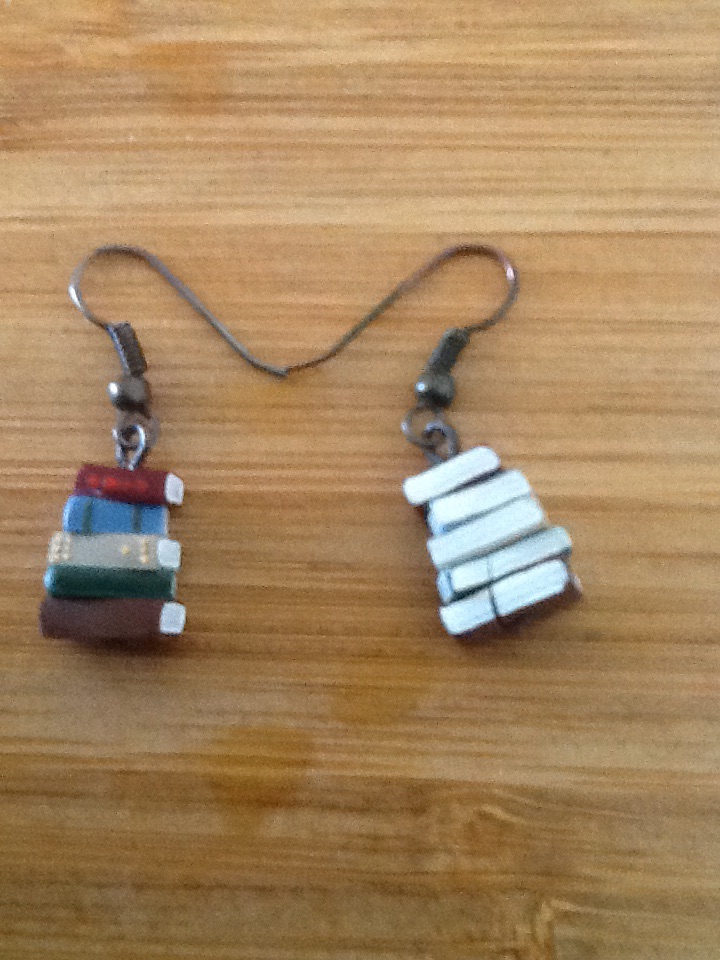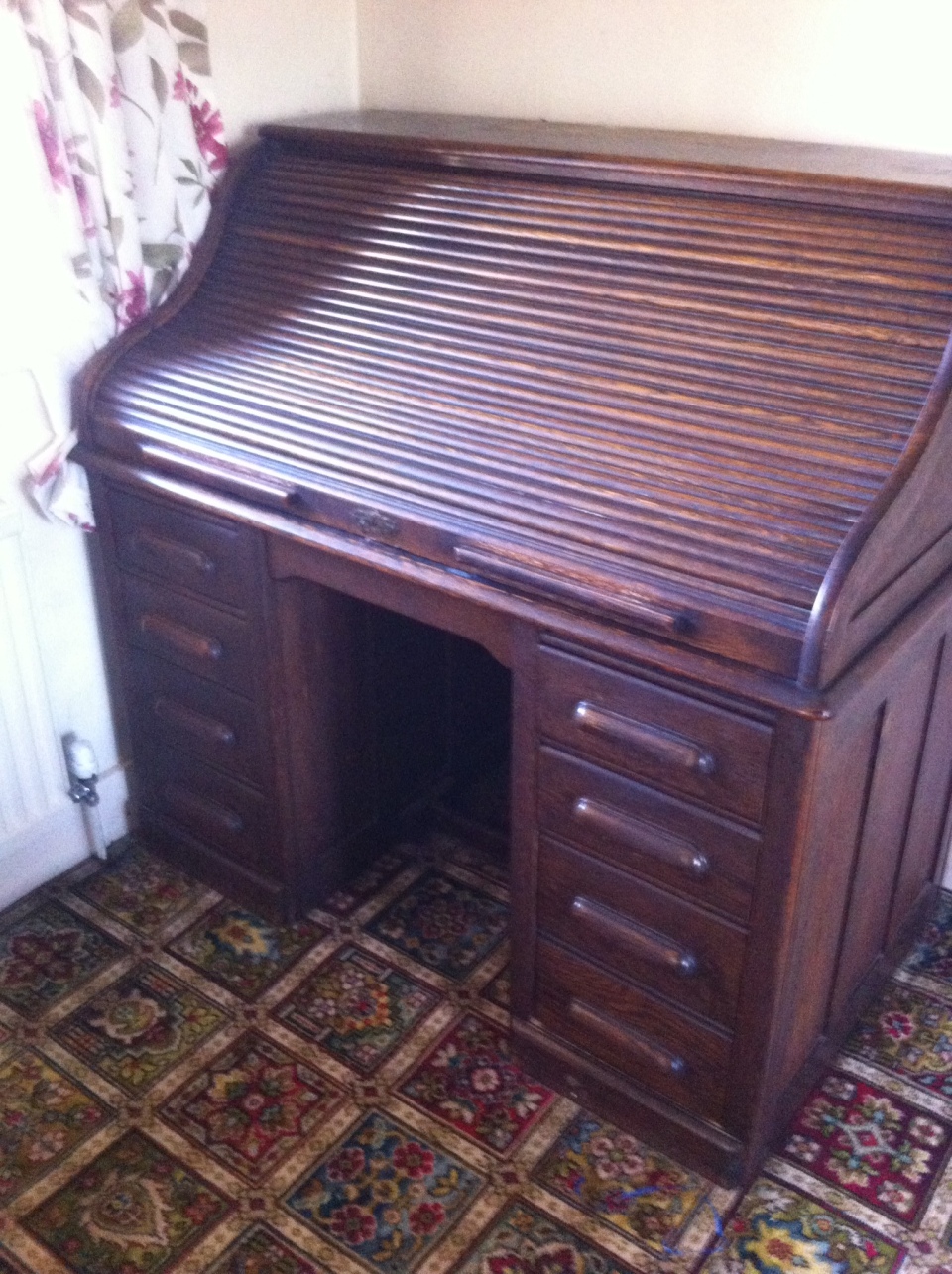 ‘These are the earrings I mention in my last paragraph – read on to find out why.
‘These are the earrings I mention in my last paragraph – read on to find out why.
My ‘Deafision’
After weeks of increased intrusive tinnitus on both sides, with vertigo, nausea and fatigue, triggered every single time I wore my hearing aids for more than an hour, I’ve been thinking more often about making a ‘Deafision’. (My word for a decision on choices linked to being deaf.) These words are very personal to me; I’m not offering any advice, just indulging myself in sharing my thoughts here.
What do my hearing aids give me?
Some sounds, but not sound recognition or directional information, and only inside the room I am in. Whether I pick the sound up or not is variable.
Some speech, if from someone facing me in the right light within a couple of feet and speaking clearly, to boost lipreading, signing, or captions/speech to text a little. Background noise at any level through the aids makes speech sound worse than useless. If outside, this includes wind, traffic, crowd noise.
Some sound with television programmes if I use an induction loop, but only if I also use subtitles. Loops in other places are not enough for me without captions.
More tendency to itchy ears and ear infections.
Things needing cleaning & maintenance, regular battery, tube & mould changes.
Trips to audiology where deaf awareness and communication skills are often in short supply.
Annoying loud feedback when wearing a hat or hood.
So, given the above, why do I wear them at all?
To hear something of the voices of my family – most especially my 2 & 10 year old granddaughters, who are hearing in hearing families so not exposed enough to sign to be able to use it to communicate with me. It’s hard enough to lipread them. If only it were taught in schools and if only I’d been given access to it growing up (in the 50s/60s) so my children had grown up bilingual. I love my family dearly; they all speak clearly enough so I can lipread them with ease and my daughters can sign a little, but how lovely it would be if they could all sign. I’ve become accustomed (not at all resentfully but peacefully with understanding) and resigned to not being part of family group conversations.
To hear some speech & music sounds in television/DVDs/theatre performances – subtitles or sign still needed for understanding.
To hear car engine sounds when driving, but this is only from long habit, probably not essential.
I can’t honestly think of any other sounds I’m desperate to hear. Not the birds singing, or the wind rustling, or even music. Perhaps the roar of the ocean, but while I can see the sea daily from my window, I’m happy it’s a strong visual presence in my life, if not a noisy one. Sound, to me, is a functional thing, not the thing of joy it clearly is to many.
What about other outside sounds?
I manage fine out and about in my small town where I live (and where I grew up). All the staff in shops, restaurants & pubs know how to communicate with me on the basic level necessary. I have had hearing dogs for over 30 years, a clear enough sign that I am deaf. (I will never wear a badge!) I’ve got great peripheral vision and observational skill. I’m a confident person who will ask others to face me, speak clearly etc without embarrassment. Buses, trains & planes are more likely these days to have visual signs as well as verbal, so, even though I always have an underlying nervousness in case of unannounced change or emergency, I can travel confidently and will ask the person next to me if I have to. Yes, I do sometimes have to give an impromptu deaf awareness lesson, but hopefully that will help the recipient to communicate better with the next deaf person they encounter.
I’m part retired and interpreters are always provided for the few days a month part time work I do. I’m happier nowadays to be more of a supportive observer than an active participant in society and community, with no FOMO (Fear of Missing Out!) troubling me. I need captions or communication support even when wearing hearing aids, so not wearing them makes very little difference to my activities. Text, FaceTime, email, social media, etc are all available to me to keep in touch with many friends.
My conclusions?
I’ve often thought that hearing aids are really for hearing people, so they can believe they don’t have to make any effort to communicate with the wearer. Everyone who is severely or profoundly deaf who wears them knows they are nowhere near perfect solutions, or solutions at all.
Cochlear implants are increasingly provided, is this for me? I feel very resistant, are they really more for hearing people as above? Do I value the possibility of increased sound enough to undergo an operation and thereafter have a foreign body inside my head with the other bit stuck on the outside? Remember, I said it’s just my family’s voices I want to hear, few other sounds matter much to me. Not all are successful and I abhor those emotive switch on videos.
What will I do?
My ‘Deafision’ is – for as often as possible (grandma days will continue to be the exception) – to go hearing aid free with only earrings adorning my ears.
I love wearing them and have a vast collection. My current favourites are my book ones – see above. If you know me, you will know just how appropriate they are. Thank you to my lovely man for giving them – and so much else – to me.
 ‘These are the earrings I mention in my last paragraph – read on to find out why.
‘These are the earrings I mention in my last paragraph – read on to find out why.